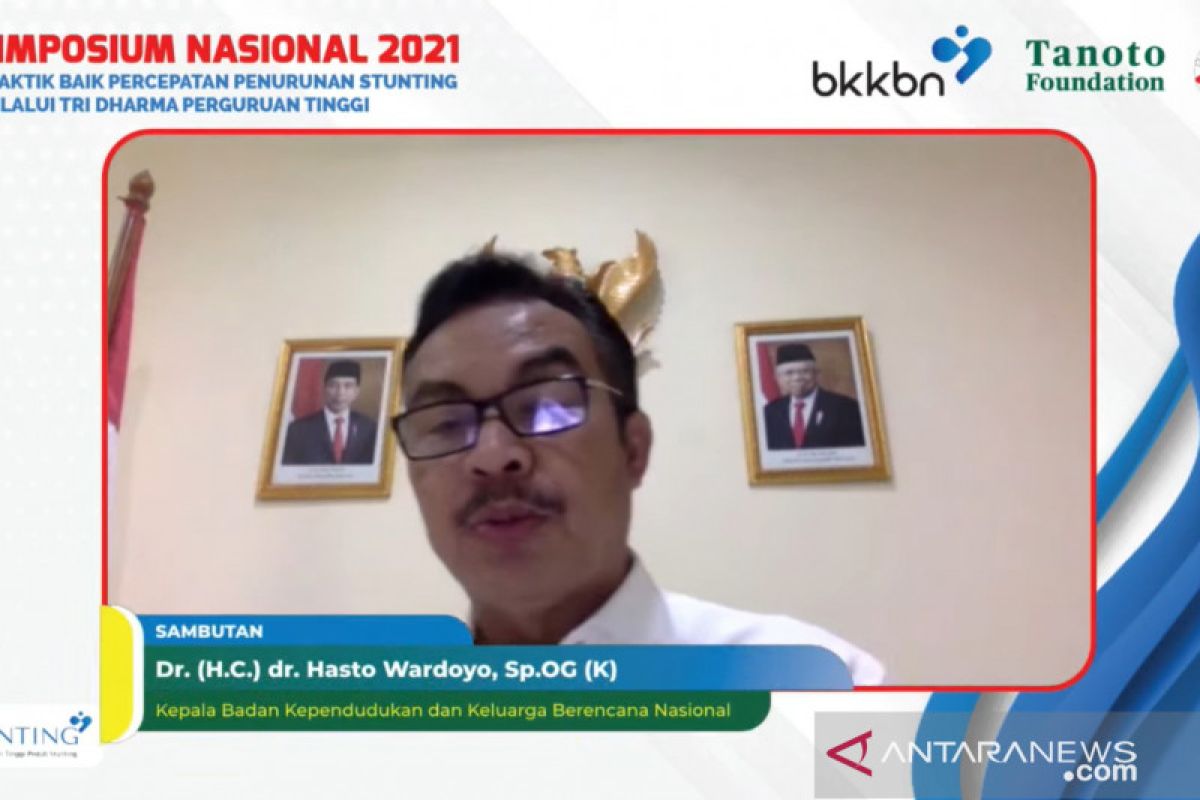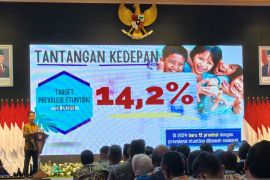"The role of universities is very important and strategic because our nation is still listed as a country with stunting, which reaches more than 30 percent. Some of our regions are in high (stunting rate) group," he said at the 'National Symposium on Good Practices for Accelerating Stunting Reduction through the Three Pillars of Higher Education', which was accessed online from here on Tuesday.
Universities can help the government provide assistance to families at risk of stunting so that mothers can give birth to healthy babies, he suggested.
Universities can also help strengthen the planning and budgeting of efforts to handle stunting, improve the quality of activities to accelerate stunting reduction, improve the quality of monitoring, evaluation, reporting, and enhance human resource capacity, he added.
He said those steps could be realized through activities in the Merdeka Belajar Kampus Merdeka program, Thematic Real Work Lectures (KKN Thematic), as well as community service.
"Including how to carry out coaching, mentoring, and advocacy to village governments and issues related to data," he added.
Wardoyo informed that, as of now, 11 universities have joined efforts to help overcome the stunting problem in the country.
He expressed the hope that other universities will participate in supporting and assisting the stunting reduction acceleration program so that the nation can reach the target of lowering the stunting rate to 14 percent by 2024.
“We are grateful to the 11 universities that have joined the stunting reduction efforts. Hopefully, other universities can follow as well. It is hoped that there will be 4,600 universities that will support stunting reduction efforts in all villages," Wardoyo said.
Related news: Stunting involves maternal, infant mortality: BKKBN
Related news: BKKBN to revitalize posyandu to expedite reduction in stunting cases
Translator: Hreeloita Dharma, Raka Adji
Editor: Suharto
Copyright © ANTARA 2021












